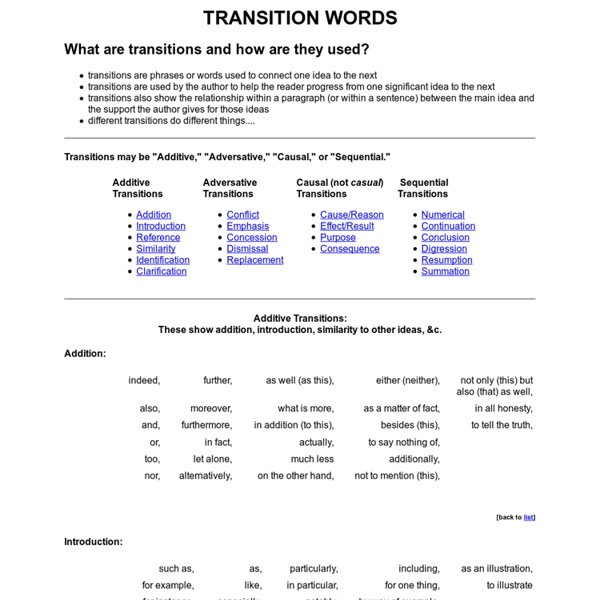



CONJUNCTIONS A conjunction is a word that links words, phrases, or clauses. Conjunctions come in three broad types: coordinating conjunctions, correlative conjunctions, and subordinating conjunctions. Coordinating conjunctions join single words or groups of words, but they must always join similar elements: subject + subject, verb phrase + verb phrase, sentence + sentence, etc. Correlative conjunctions also connect sentence elements of the same kind but with one difference: correlative conjunctions are always used in pairs. Subordinating conjunctions connect subordinate clauses to a main clause. These conjunctions are adverbs used as conjunctions. Coordinating conjunctions and correlative conjunctions are listed below. To help remember the coordinating conjunctions, think of the word FANBOYS. Click on the conjunction to read a bit more about it. Commas and coordinating conjunctions: 1. Marty had thought he had a date with Sarah, but Sarah went to the movies with Jesse, instead. 2. 3. 1. 2. 3. 4.
English Grammar Pill: How to use “unless”? A fellow teacher asked me a few weeks ago if I had written anything about the use of the conjunction “unless”, and if I hadn’t, would I be prepared to write something about it? Not one to refuse a challenge, I thought to myself: “Why not?” Well, it took me longer than I thought to get round to researching this pesky grammar word and when I finally got down to working on it, I realised why I had delayed the process. There are certain grammar rules and parts of speech that are used naturally and without thinking by native speakers all their lives until that moment when someone asks them how a certain word or expression is used and everything falls apart! I decided to give it a go and I sincerely hope that my explanation makes sense. STRUCTURE As mentioned above, unless is a conjunction which we use in conditional phrases. When unless comes before a main clause we use a comma: Unless it rains, we’ll go for a picnic tomorrow. When the main clause comes first, no comma is required: Ciao for now
Types of Conjunctions: Coordinate Conjunctions, Subordinate Conjunctions, and Correlative Conjunctions written by: Keren Perles • edited by: SForsyth • updated: 10/17/2014 What are conjunctions? Sure, they're joining words, but they're much more than that. Definition: Conjunctions are words that link other words, phrases or clauses. 10 Types of Transitions By Mark Nichol Writing is simply a matter of expressing ideas, but as we all know, it’s not so simple after all. One challenge is to coherently connect those ideas. This post lists ten categories of words and phrases one can employ to signal a transition, with several examples for each type. These words and phrases can be used within a sentence as well as at the beginning. Note, too, that many can apply to more than one category. 1. “Besides, it would give me great satisfaction to help you.” “First, I’d like to thank you for inviting me to speak tonight.” 2. “Likewise, the sequel was very successful.” “Similarly, we observed no differences in response rate.” 3. “Naturally, the final decision is up to her.” “Of course, he will want to examine the documents himself.” 4. “However, I don’t see what that has to do with anything.” “Otherwise, how can they expect us to comply?” 5. “As a result, I’m not sure what to do.” “For this reason, we have decided to halt the project.” 6. 7. 8. 9. 10.
Conjunctions, connectors, coordination and subordination Coordinating and subordinating words : conjunctions connectors and conjunctive adverbs. Key points : Connectors - also called conjunctive words - are words that link two similar elements in a sentence. The four categories of connector are A small number of conjunctions and conjunctive adverbs can link individual words or phrases; but the majority can only link two clauses.A coordinated clause or phrase must follow the clause or phrase to which it is connected.A subordinate clause normally follows the main clause, but in some cases may preceed it. The problem with conjunctions : where linguists disagree Most traditional grammars just repeat the established classification of conjunctions as being either coordinating conjunctions or subordinating conjunctions. OK Though he did not win, he took part in the competition. This suggests that the pertinent distinction between different types of conjunction is not actually one of function, but one of usage. Part 1. 1. Examples: 2. 3.
How It Works - GrammarFlip GrammarFlip is a self-paced, instructional program that provides a unique sequence of engaging videos on grammar, mechanics, and usage. Topics and concepts such as parts of speech, parts of the sentence, punctuation, and usage are introduced in relation to each other. This scaffolds learning and solidifies student understanding as the program progresses. At their own pace, students watch instructional videos from home, having the ability to pause and review sections that remain unclear to them. Through a reporting feature, teachers can quickly assess how students performed on their practice exercises in order to identify which students need further assistance.
grammar tips termium Peck's English Pointers Accueil > TERMIUM Plus® > Peck's English Pointers > Table of Contents La zone de recherche et les fonctionnalités English Grammar – Stay posted when grammar rules change! English Grammar Games and Notes - Woodward English Learning English Online